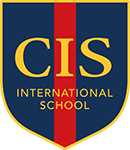

English is a real golden key to communication in the modern world. Today no one doubts the need to teach a child the language of international contacts. But is it better to learn English with a native speaker or a Russian-speaking teacher? Such a dilemma is inevitable for parents!
The opinions of experts differ: someone considers it unacceptable to invite a foreigner - others, on the contrary, are sure that “ours” will not teach excellent English.
To answer this question, you will have to deal with the pros and cons of each teaching option and find a balance, taking into account the individual characteristics of the young student.
Each child is a real machine for processing a variety of information. Learning a foreign language, in particular, occurs naturally for a child — like the native one. Therefore, it is enough to captivate the baby, create conditions — and the learning process will begin.
In this case, of course, we are not talking about the lessons “at the desk”: studying should be organized in the game form and take into account the mood and the willingness of the child to receive information at this particular moment.
Considering a native speaker is good, but a Russian-speaking teacher is bad (or vice versa) is certainly incorrect. However, key differences should be noted.
|
Russian-speaking teacher:
Explains new themes in a comprehensible language; understands all the difficulties of mastering English, as he went through them himself; shares analogies with the mother tongue, which will simplify the understanding of a foreign language. |
English teacher:
provides an active perception of the language by ear; vocabulary replenishment occurs naturally; helps the student to overcome barriers in communication in a foreign language. |
It becomes obvious that the smallest children learn a foreign language with a native speaker easier because this way not only they learn English - they begin to understand spoken language, speak fluently, and most importantly, think in English.
The best age for learning a foreign language as a second mother tongue is from infancy to 5-6 years old. If parents want their children to be bilingual, they should choose an English-language teacher.
Choosing a native speaker, one should clearly understand: a native speaker and an excellent teacher are not equivalent concepts. A good teacher instills a love of language, arouses interest in classes.
A real teacher is a professional who knows the theory and methods of teaching and moreover has the practice of working with children. To prove his skills, he must show you:
Finding native English speakers in Moscow for children is a task that parents can hardly solve on their own. Therefore, everyone who is interested in efficient education will be pleased to know the problem has been successfully solved long ago: in Moscow, St. Petersburg and Tashkent, the CIS International School offers English for children with native-speakers. You are kindly asked to learn the information by calling the free number in Russia +7-800-775-42-70 and in Uzbekistan – 998-71-209-66-69.
We hope you can make the proper decision which teacher is right for your child.
The colors of the rainbow are part of the basic lexicon. Try spending an entire day without naming colors, and you'll see for yourself how hard it is to do without them.
What food is worth trying while in England? Popular soups and meat dishes, pies, puddings, desserts. An overview of the 10 most unusual, famous, and delicious dishes of the national cuisine.
This article describes the types of accents in modern English. The most popular dialects of the English language.
Transcription in English: how to read and pronounce correctly? The difference between pronunciation and spelling in English.
In this article you can learn about the most famous museums that are located in Britain. What these buildings look like and where they are located.
Is knowing a language without grammar possible? For sure, but only to a certain level. This is, for example, how toddlers speak their native language. They can indicate their wishes and problems or ask questions, often twisting words and sentences so sweetly. But it is impossible to have a full command of a language tool without knowing its grammar rules.
In fact, there are some similarities between the two along with important and curious differences. To see the difference between college and university, let us discover the opportunities that their students get during the study years and after the graduation.
To see closer into the practices that will help you improve your English pronunciation let us discover the specific phonetic characteristic of English and the nuances of its sounds vocalization.